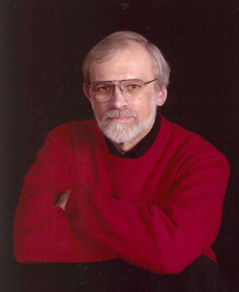I've been re-thinking some of the basic issues Wake Up Washtenaw is here to address. Based on some of the questions I get when out talking with people, I'm going to "go back to the basics" with a series of FAQs (Frequently Asked Questions). Here's the first:
During the second half of the 20th century, we Americans invested about 1.2 trillion dollars to build the Interstate Highway System, which enabled many of us - for a while - to live a long way from where we work, play, and get our food. But now, we're paying the price: the result was sprawl, congestion, dependence on foreign oil, and forcing people either to invest heavily in personal transportation (cars), or be relegated to an under-class whose freedom to move around is very limited. Car-less people have relatively few choices of where to live in order to preserve their freedom of movement. That's why young people who prefer not to have a car migrate away from Michigan to live in cities like Chicago, Boston, Washington, Seattle, and San Francisco. And that's why being unable to own a car in Michigan is effectively a prison sentence.
Good, reliable transit provides everyone with a relatively inexpensive alternative way to get where they want to go...within limits. It doesn't go everywhere, and it never will. Transit will never replace personal vehicles for everyone, so it's important to have cars and trucks that don't burn petroleum products.
But strong, fixed transit does more than provide an alternative: it encourages communities to grow in compact clusters close to transit stations. Such communities enable people to obtain their daily needs within walking distance of where they live. It enables them to use transit to get to work on time. It makes it necessary to for them to walk a bit more, which improves their health. It eliminates the need to burn petroleum in order to get to a store for food. That, in turn, reduces our dependence on imported oil. (Americans send more money abroad to buy oil than we pay in taxes to maintain our roads.) And greenhouse gas emissions are reduced as well. Transportation is responsible for about 30% of America's greenhouse gas emissions.
So having communities that are oriented around good, fixed transit is an essential key to sustainability. There's a lot more we need to do, but without reshaping our communities away from sprawl, all other measures will fall very short of sustainability.
Q: Sustainable I understand, but why transit-oriented?
A: Transportation has determined how humans build communities since the rise of cities. Whether on rivers, harbors, or caravan routes, people living in fixed towns and villages want to be where they can take advantage of transportation routes. In the United States, it's especially important for us to be able to move freely, because the essence of freedom is being able to go where we want to go.When someone is arrested, the first freedom they lose is the ability go where they want.During the second half of the 20th century, we Americans invested about 1.2 trillion dollars to build the Interstate Highway System, which enabled many of us - for a while - to live a long way from where we work, play, and get our food. But now, we're paying the price: the result was sprawl, congestion, dependence on foreign oil, and forcing people either to invest heavily in personal transportation (cars), or be relegated to an under-class whose freedom to move around is very limited. Car-less people have relatively few choices of where to live in order to preserve their freedom of movement. That's why young people who prefer not to have a car migrate away from Michigan to live in cities like Chicago, Boston, Washington, Seattle, and San Francisco. And that's why being unable to own a car in Michigan is effectively a prison sentence.
Good, reliable transit provides everyone with a relatively inexpensive alternative way to get where they want to go...within limits. It doesn't go everywhere, and it never will. Transit will never replace personal vehicles for everyone, so it's important to have cars and trucks that don't burn petroleum products.
But strong, fixed transit does more than provide an alternative: it encourages communities to grow in compact clusters close to transit stations. Such communities enable people to obtain their daily needs within walking distance of where they live. It enables them to use transit to get to work on time. It makes it necessary to for them to walk a bit more, which improves their health. It eliminates the need to burn petroleum in order to get to a store for food. That, in turn, reduces our dependence on imported oil. (Americans send more money abroad to buy oil than we pay in taxes to maintain our roads.) And greenhouse gas emissions are reduced as well. Transportation is responsible for about 30% of America's greenhouse gas emissions.
So having communities that are oriented around good, fixed transit is an essential key to sustainability. There's a lot more we need to do, but without reshaping our communities away from sprawl, all other measures will fall very short of sustainability.





No comments:
Post a Comment